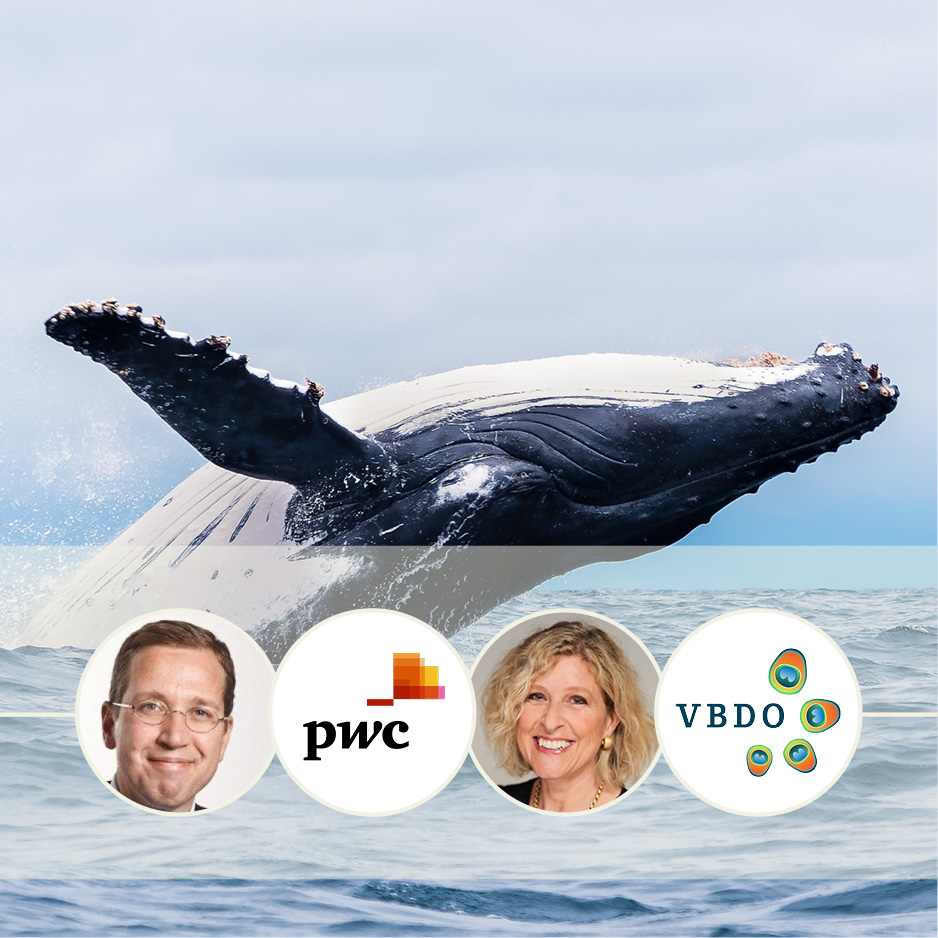What are (listed) companies doing to reduce their negative impact on biodiversity and thus increase their future sustainability? What are the good practices to learn from? For Angélique Laskewitz, director at VBDO and Alexander Spek, Sustainability Lead at PwC, biodiversity is the keyword.
Investors are already working on it, large organizations need incentives to get started, and the current economy urgently needs to transform. Spek and Laskewitz are in daily discussions with companies about the impact of biodiversity on the organisation’s future sustainability. What large organizations are doing now, both practically and strategically, and why this is essential for the resilience of the business community, according to the Biodiversity & Business report, a collaboration between PwC and the Association of Investors for Sustainable Development (VBDO). Further research into the impact of biodiversity on business should ultimately lead to a new benchmark.
Make companies aware of their dependence on nature
“Companies too often underestimate the dependence on nature,” says Laskewitz. “Our global economy and societal progress depend on the stability of our ecosystems and nature.” Spek, responsible for advice on nature and strategy for clients at PwC, emphasizes that more than 55 per cent of the global economy depends on nature. According to him, raising awareness is essential to the order of the day. ‘A large company largely dependent on natural resources recently stated that biodiversity is not yet an urgent issue for them. This shows that organizations find it difficult to estimate the value of nature for their future sustainability in the longer term.’
Good and realistic biodiversity policy
That is why the VBDO and PWC investigated the biodiversity policy of large companies. In-depth
In discussions with companies in construction, chemicals, retail, and lighting, among others, they discussed the approach to biodiversity, management involvement, strategy development, setting objectives, and all the challenges that come with this.
Spek believes the outcome of these conversations, including practical examples and concrete challenges, shows how essential bundled information about this is. ‘As a stakeholder – from customer to investor – you want to form a good and realistic picture of what all policy measures entail and their strategic and financial effects.
Clear reporting, such as the EU directive for mandatory sustainability reporting, the Corporate Sustainability Reporting Directive (CSRD) now prescribes, ensures transparency and allows stakeholders to compare companies.
Biodiversity benchmark
“We want to challenge companies to continue working on biodiversity and nature,” says Laskewitz. With a benchmark, you stimulate better performance and more transparency based on competitiveness. Every company wants to do well; no one wants to be left behind. From our previous experience with benchmarks, for example, for tax transparency, we also know that this works. Spek adds: ‘Thanks to the CSRD, transition plans and reporting in the field of biodiversity are no longer a choice; organizations must now start working on it in concrete terms.’
Creating that transparency is the goal, Spek explains. ‘The CSRD puts biodiversity on the agenda, but in practice, this new guideline leaves much room for interpretation. This leads to different approaches and little coordinated action, making comparing companies difficult. That is why we are now working on a biodiversity benchmark – a template with clear and pre-established criteria so that not everyone has to reinvent the wheel themselves. With this benchmark, we will guide how organizations can take meaningful steps in the field of biodiversity. In addition, it helps stakeholders to compare companies and their efforts properly.
Nature as a basis for business
Companies are getting longer and longer to-do lists. Now, we must map out the dependencies and risks of declining biodiversity and increase the impact on nature. ‘Nowadays, there are many topics and themes that require the attention of CEOs. Because of all the threats and opportunities, companies must set priorities. Of course, I understand that,” says Spek. ‘But I continue to emphasize that nature is fundamental to healthy life on earth and forms the basis of everything we do. So also from the business community.’ Laskewitz shares that view. ‘The attention entrepreneurs now pay to biodiversity will yield the most profit for everyone in the long term.’

